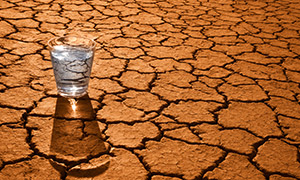To improve water management at local, regional and global levels, we first need a better understanding of related impacts, as well as internationally consistent assessment techniques, to identify our water footprint and report results.
To address these issues, ISO created working group WG 8, Water footprint, within technical committee ISO/TC 207, Environmental management, subcommittee SC 5, Life cycle assessment. The WG is developing ISO 14046, Environmental management - Water footprint - Principles, requirements and guidelines, expected to be published by mid 2014.
ISO 14046 will specify principles, requirements and guidelines related to the water footprint assessment of products, processes and organizations, based on life-cycle assessment. It can be used to conduct and report a water footprint assessment.
Who will benefit?
ISO 14046 is expected to benefit organizations, governments and interested parties worldwide by providing transparency, consistency and credibility to the task of assessing water footprint and reporting the water footprint results of products, processes or organizations.
What is a water footprint assessment?
According to ISO 14046, a water footprint assessment:
- Relies on a life-cycle assessment

- Is modular (that is, the different life-cycle stages of the water footprint can be summed up to represent the water footprint)
- Identifies potential environmental impacts related to water
- Includes relevant geographical and temporal dimensions
- Identifies the quantity of water used and changes in water quality
- Utilizes existing hydrological knowledge
How will it help?
A water footprint assessment can help in:
- Assessing the magnitude of potential environmental impacts related to water
- Identifying opportunities to reduce water-related potential impacts associated with products at various life-cycle stages, and with processes and organizations
- Evolving a risk management strategic related to water
- Facilitating water efficiency and the optimization of water management at product, process and organizational levels
- Informing decision makers in industry, government or non-governmental organizations of their potential impacts related to water (for example, for the purpose of strategic planning, priority setting, product or process design or redesign, and decisions about the investment of resources)
- Providing scientifically consistent and reliable information for reporting water footprint results
Water use and management have become central to the global debate on sustainability.
A water footprint assessment alone is not enough to describe the overall potential environmental impacts of products, processes, services or organizations, including the impacts on ecosystems, human health and resources. However, an assessment conducted in conformity with ISO 14046 can be treated as a stand-alone result focusing only on impacts related to water.
It can also be part of a more comprehensive environmental assessment. The results will provide a single value or a profile of indicator results. In ISO 14046, the term "water footprint" is only used when it is the result of an impact assessment.
The author


